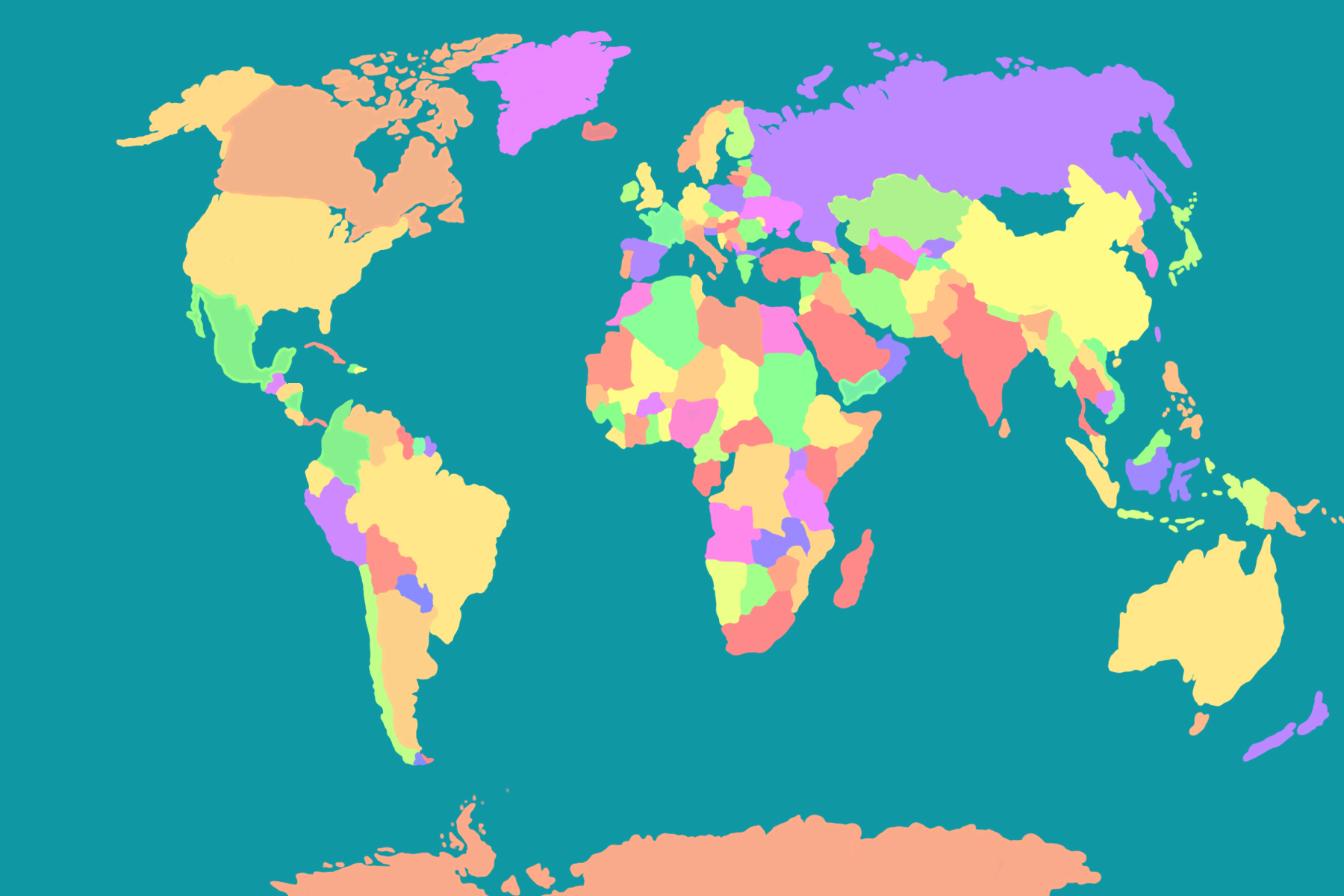While the past few years have been leading up to a rocky past few weeks, nuclear obliteration is closer than it’s been in a while. People have been failing to predict the exact date of “the end times” (or the ushering in of a future dystopia) since 1999 — and while 2000 and 2012 have both passed — some would argue 2020 seems suspect.
It’s impossible to predict what can happen in a year or where you’ll be. A best case scenario is achievable, but equally impossible to truly predict. While hopefully we won’t have to remember forever where we were when something happened, we might as well take a mental note of the time we’re living in. For the sake of distraction, here are some good and bad things going on in 2020 that may or may not fortell the end of humanity — but if so, not for at least another 20 years.
Climate
The Earth is dying, and it’s our fault. Nothing sets the scene for a post-apocalyptic dystopia like a bleak desert landscape, but unfortunately this trope is becoming reality. Worldwide, deserts are growing at an alarming rate, a particularly terrifying example being China’s Gobi Desert, which expands by more than 2000 miles per year. The dust that is freed during this process makes the air quality unlivable, while replacing land previously used for agriculture with wastelands that breed sandstorms. While this occurrence isn’t entirely due to climate change, it is in fact entirely our fault. On average, deserts around the world grow by an area around the size of Ireland.
These manmade processes are the result of overgrazing, unsustainable agricultural practices, deforestation and water depletion — all of which contribute to the erosion of land; each of these factors alter the soil chemistry and water retention capabilities, making it impossible to sustain its original plant and eventual animal life: the perfect recipe for a post-life-on-Earth dystopia.
Cancer
JUUL is still standing. Since the CEO of JUUL stepped down, the Silicon Valley-based startup has continued to sling pods, but has since been pressured to only provide less than yummy flavored e-juice to middle schoolers and ex-smokers. Flavors such as “mango,” “fruit” and “creme brule” are no longer offered, and although JUUL is only allowed to sell “adult” flavors like tobacco and menthol, it didn’t stop them from trying to disguise the same child-flavored juices with more adult sounding names, like “creme” or “cucumber.” The hype for JUUL brand pods officially ended after the discontinuation of the last remotely tolerable flavor: mint.
Nonetheless, the loss of flavor never stopped the true JUULer. Short-lived knockoffs or heavily JUUL-inspired disposable products continue to be released seemingly every month under names like “Puffbar,” “RG,” “Stig” and “Zero,” all of which are equally terrible choices. Off-brand-flavored JUUL pods are also in heavy circulation, cycling between being invented and banned, as preteens scramble to find their next source of e-juice. While the liquid inside of your legal JUUL is bad enough to lead to conditions like popcorn lung and a variety of cancers, knockoff brands only heighten your chance of an early death.
On the brighter side, cancer rates in the U.S. have dropped by more than 20% over the past 20 years, and 29% since 1991. That’s 2.9 million fewer deaths per year, thanks to lower rates of smoking and advances in therapies treating lung cancer. Advances in research on melanoma have also helped prolong millions of lives. The number of deaths prevented from advances in treatments of lung cancer and melanoma have pulled up the cancer mortality rate — lower than it’s ever been — with 2016 and 2017 showing the sharpest one year drop of all time. Maybe that’s a nice distraction from any potential future dystopia.
Technology
Africa is not a country, but the continent itself is the world’s fastest growing in the field of software development. While Ethiopia is the quickest expanding economy in the world, there is a tech developer boom that shows no sign of slowing down, with major hubs creating Silicon Valleys in Nigeria, Kenya and South Africa. These tech and startup meccas have grown in number by more than 40% in the past year. Innovation to solve complex problems is flourishing along with the amount of engineering talent coming out of these various centers.
Unfortunately with technological advances, similar to everything else, with the good comes the bad. Back in California’s Silicon Valley, big tech has officially entered the oil industry, in the form of artificial intelligence. Artificial intelligence, AI, or machine learning has been called the biggest thing to happen thus far, and has immeasurable potential. While used to save lives in medicine and protect our computers from malware, AI is also the reason for your creepily-tailored ads, and probably the monitoring of your online presence. Is this the creepy, surveillance-society dystopia that we all feared?
However, arguably much worse is the use of artificial intelligence to extract oil with godlike precision. Both Google and Amazon have teamed up with the fossil fuel industry in order to extract as much oil and gas from the ground as possible. The fear of running out of oil has for the past century been quieted by our progressively more aggressive methods of finding it and by technological advances. As big oil and gas are predicted to spend $4 billion on AI in the next five years from the almost $2 billion they’ve been spending, the tech companies involved still claim to care about “sustainability.” Google might have had us fooled for a while by secretly directing “The Internship,” but it’s really too late for them to go back to their quirky nerd guise now.
Well, that was exhausting. Staying up to date is important, but everybody needs a break, and probably a break from the things you do to take a break. Distracting ourselves from reality — and potential dystopia — is what we do best. It’s cathartic and sometimes even necessary. It reminds us that there’s a little bad in the good, and a little good in the bad. On days when the world seems more bad than good, there’s probably somebody who had a nice time.
















